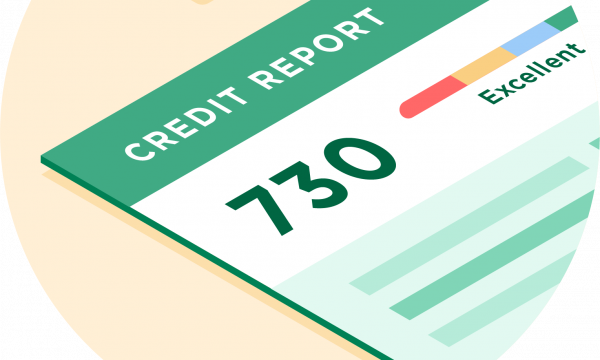How Does the Fair Credit Reporting Act Protect You?
Federal law gives you free access to your credit report, regulates who else can see it and lets you dispute errors.

Many, or all, of the products featured on this page are from our advertising partners who compensate us when you take certain actions on our website or click to take an action on their website. However, this does not influence our evaluations. Our opinions are our own. Here is a list of our partners and here's how we make money.
What is the Fair Credit Reporting Act?
The Fair Credit Reporting Act is a federal law that’s designed to ensure the accuracy, fairness and privacy of information in credit reporting. It sets rules for how consumer reporting agencies — including credit bureaus and companies that compile medical records and tenant histories — should gather, share and use credit information.
The FCRA gives consumers certain protections, such as the right to access their credit scores and reports as well as to dispute inaccurate information.
Stress less. Track more.
See the full picture: savings, debt, investments and more. Smarter money moves start in our app.
What are your rights under the Fair Credit Reporting Act?
The Fair Credit Reporting Act gives you several important rights. You can read the full text of the FCRA from the Federal Trade Commission. Here are the key protections:
You have a right to know what’s on your credit reports
Under the FCRA, you’re entitled to at least one free credit report per year from each of the three major credit bureaus — TransUnion, Experian and Equifax. But since the pandemic, the bureaus started offering free weekly access. Request your reports by using AnnualCreditReport.com.
By checking your credit report regularly, you’ll be able to see what your potential lenders see. You can also look for errors or outdated information that could be hurting your scores.
🤓 Nerdy Tip
You can request your credit report in Spanish directly from each of the three major credit bureaus:· TransUnion: Call 800-916-8800.
· Equifax: Visit the link or call 888-378-4329.
· Experian: Click on the link or call 888-397-3742.
🤓 Consejo Nerdy
Usted puede solicitar una copia de su informe crediticio (gratis y en español) de cada una de las tres principales agencias de crédito:
· TransUnion: Llame al 800-916-8800.
· Equifax: Visite el enlace o llame al 888-378-4329.
· Experian: Haga clic en el enlace o llame al 888-397-3742.
You have the right to freeze your credit reports
Freezing your credit reports can help protect you from fraud and identity theft. When you freeze your credit, you restrict creditors’ access to your report to prevent others from opening up credit in your name.
The FCRA entitles you to free credit freezes, also known as security freezes. Freezes will stay in place until you remove them.
You have the right to request your credit score
Consumer reporting agencies have to provide you with credit scores. However, unlike with credit reports, you aren’t guaranteed free access to your scores. That doesn’t mean paying a fee is necessary, though. You can get a free credit score from personal finance websites like NerdWallet.
You have a right to keep your information private
Although your credit can be checked in many situations — when you apply for credit, a job, utilities, student loans, etc. — it typically requires your consent. Your credit report can’t be distributed to a third party unless it’s related to a credit transaction, employment or court order.
Employers get a modified credit report. They must also get your written permission and notify you in writing if they use the information against you.
If you're turned down for credit, the entity that checked your credit history will send you an adverse action notice. The notice will explain what report was checked, the reasons your application was denied and further actions you can take.
You have a right to dispute credit report errors
If your credit report includes incorrect or outdated information, you can file a dispute to have it removed. Credit bureaus generally have 30 days to investigate, and they must remove or correct inaccurate information.
If the report is updated as a result, you can request that the credit bureau notifies anyone who’s recently requested your credit report of the change. Even if they don’t make a change, you can ask for a letter of dispute to be included in your file. By doing this, future prospective lenders and employers will be able to see your side of the story.
Stress less. Track more.
See the full picture: savings, debt, investments and more. Smarter money moves start in our app.
You have a right to time limits on negative credit information
Bankruptcies shouldn’t appear on credit reports after 10 years. Collections are only supposed to stay on your report for seven years — but even if they’ve passed their statute of limitations, debt buyers might still try to collect on the debt. Some debt buyers might re-age the debt, or change the date of delinquency on the account, in order to extend the statute of limitations. This practice violates the Fair Credit Reporting Act.
If your debts have been re-aged illegally, set the record straight by writing to the credit reporting company and the credit bureaus and attaching copies of supporting documents. If collectors don’t withdraw a wrongful re-aging, the FTC could fine them.
What to do if your rights have been violated
If you feel like creditors, employers or debt buyers are misusing your credit data, there are ways to get help:
- Contact the credit bureaus. Remember that you can file disputes with the bureaus regarding errors on your credit reports.
- You may also consider taking legal action. You have the right to sue violators for damages and attorney fees.
You can learn more information about your rights from the CFPB.
Article sources
NerdWallet writers are subject matter authorities who use primary,
trustworthy sources to inform their work, including peer-reviewed
studies, government websites, academic research and interviews with
industry experts. All content is fact-checked for accuracy, timeliness
and relevance. You can learn more about NerdWallet's high
standards for journalism by reading our
editorial guidelines.









